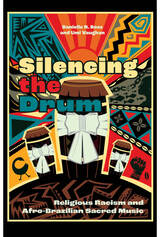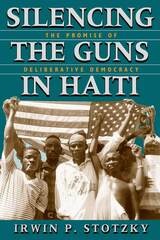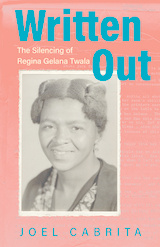

"A provocative study of the prospects for the rule of law in Haiti."—Marilyn Bowden, Miami Today
"[Stotzky] deepens insights into the contradictory obstacles to democratic governance in Haiti."—Library Journal
"Controversial and stimulating."—Choice
"Lucid and informative. . . . Stotzky gives readers a good foundation for understanding the pressures facing the impoverished but determined Caribbean island."—Islands

We can trace many important strategic decisions to compelling official fictions such as Kennedy's "missile gap" and Reagan's "window of vulnerability." Over the years, antinuclear movements have had mixed success debunking these fictions, raising public consciousness, and reorienting government policy.
Andrew Rojecki explores links between nuclear arms policy and the visibility of opposition groups in the media. He pays particular interest to two cycles of protest: the test ban movement of the Eisenhower and the Kennedy administrations and the Reagan-era nuclear freeze movement. As Rojecki shows, space devoted to the opposition as well as the quality of the coverage varied widely from the first to the second period. The change reflected different climates of public opinion and foreign policy but also a subtle shift in political culture that undermined the legitimacy of citizen protest. As the rationalized policymaking of government agencies, think tanks, and university departments increasingly restricted public debate, the potential for citizens to influence nuclear politics became more circumscribed while nuclear weapons continued to proliferate.

Dana Crowley Jack offers startling new insights into the roots of female depression as she illuminates why women are far more likely than men to suffer major depression in adulthood. Silencing the Self is the first sweeping overview of depression in women that draws on new understandings of the importance of relationships in women’s lives. Attending closely to what depressed women have to say about their lives, Jack reframes major concepts of depression, freeing them from traditional models that have restricted our ability to listen to women’s perspectives on depression.
Jack weaves these voices of depressed women directly into her discussion, providing new meanings to familiar themes: dependence, pleasing, anger, goodness, low self-esteem. These women clearly articulate a no-win, either/or tension in their lives, a tension between sacrificing their own needs in order to preserve a relationship and acting on their needs and feelings at the risk of losing the relationship. Their stories bring to light the “activity required to be passive”—the way women actively silence themselves in order to cultivate and maintain intimate relationships. To accommodate, they learn to censor themselves, to devalue their experience, to repress anger, to be silent. Examining moral themes in depressed women’s narratives, Jack demonstrates how internalized cultural expectations of feminine goodness affect women’s behavior in relationships and precipitate the plunge into depression. In a brilliant synthesis, Jack draws on myth and fairy tale for metaphors to further the understanding of depressed women.
Silencing the Self makes a major contribution to the psychology of women by drawing from the recent literature on women’s relational self and detailing its relevance to female depression. This insightful approach to the dynamic of female depression forges new pathways to self-change, therapy, and research.

READERS
Browse our collection.
PUBLISHERS
See BiblioVault's publisher services.
STUDENT SERVICES
Files for college accessibility offices.
UChicago Accessibility Resources
home | accessibility | search | about | contact us
BiblioVault ® 2001 - 2024
The University of Chicago Press









